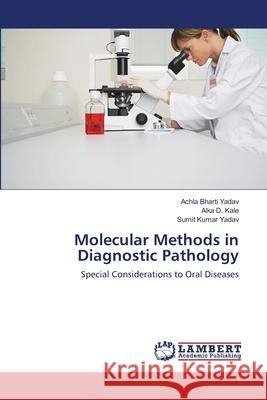Molecular Methods in Diagnostic Pathology » książka
Molecular Methods in Diagnostic Pathology
ISBN-13: 9783659498497 / Angielski / Miękka / 2013 / 64 str.
Advances in molecular technologies over recent years have a profound impact on diagnostic pathology. Molecular biology techniques utilize DNA, RNA, and enzymes that interact with nucleic acids to understand biology at a molecular level. Information derived from genomics and proteomics have permitted improved insights into a range of disorders and have led to improvements in the understanding and classification of many diseases. These advances will provide a complementary approach to traditional methods of histopathological analysis in the future. Molecular analysis will significantly impact three major areas: specific diagnosis, prognosis determination and prediction of response to therapy. The pathologist will continue to play a fundamental, role in diagnosis and will likely be in a pivotal position to guide the implementation and interpretation of these tests as they move from the research laboratory into diagnostic pathology.
Advances in molecular technologies over recent years have a profound impact on diagnostic pathology. Molecular biology techniques utilize DNA, RNA, and enzymes that interact with nucleic acids to understand biology at a molecular level. Information derived from genomics and proteomics have permitted improved insights into a range of disorders and have led to improvements in the understanding and classification of many diseases. These advances will provide a complementary approach to traditional methods of histopathological analysis in the future. Molecular analysis will significantly impact three major areas: specific diagnosis, prognosis determination and prediction of response to therapy. The pathologist will continue to play a fundamental, role in diagnosis and will likely be in a pivotal position to guide the implementation and interpretation of these tests as they move from the research laboratory into diagnostic pathology.











